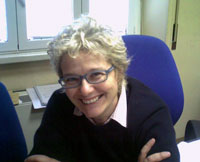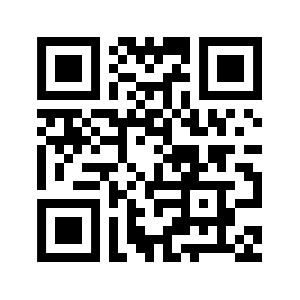RESEARCH AND THIRD MISSION OFFICE
Manager
Anna Elisa D’Agostino
T: 0685225989
Viale Romania, 32
00197 Roma
ricerca@luiss.it
Research Centers
Alessandra Paoletti
T: 06 8522 5826

Reference center: Research Center AI4Society
CESARE is an experimental research laboratory for the study of economic behavior, conducting research based on experiments of interest to researchers in the social sciences, including experimental economics, finance, political science, sociology, anthropology and marketing.
The mission of the laboratory is to observe economic behavior in order to better understand the factors that determine this behavior. Fundamental to this mission is to conduct experiments with appropriate incentives and under controlled conditions, in order to identify the factors that influence behavior and measure their effects. A special infrastructure was built for this purpose, internally designed and financed with the contribution of Deloitte, consisting of a Control Room, 26 workstations, two large screens and two ceiling mounted projectors. In this space, researchers can carry out investigations based on experiments that involve the observation of human subjects who make economic decisions under controlled conditions, and which thus allow the testing of theories of economic behavior.
An ad hoc methodology for carrying out online experiments has recently been developed at the Laboratory.
The Laboratory also offers its collaboration for educational innovation in the microeconomics courses of the university's three-year degrees thanks to the contribution of Dr Buso, Lorè and Spadoni. All the young researchers affiliated with the Center provide support activities to the Summer School with the preparation of classroom experiments.
The Laboratory also offers support and advice for experimental activities to researchers who do not have an adequate infrastructure to carry out experiments.
Services offered and how to use the Laboratory
The CESARE laboratory provides advanced facilities and comprehensive support for experimental research in the social sciences, significantly reducing costs related to space, equipment and recruitment. We offer assistance with design, programming and data analysis, as well as comprehensive administrative support.
To access the Laboratory, you must send a signed copy of the Code of Ethics to the Director of the Centre and request authorisation from Daniela Di Cagno, Irene Maria Buso or Lorenzo Spadoni. Management of bookings and individuals is done through the ORSEE system.
Viale Pola, 12, Aula 204
To enroll in to ORSEE in order to partecipate to our experiments: click here
For information or reports relating to the experiments, please write to laboratoriocesare@luiss.it
Sign up for the experiments:
CESARE for rent
Our lab helps researchers overcome typically high costs of equipment, subject recruitment and physical laboratory space for experiment-based research. Our lab substantially lowers those costs, providing a new and convenient cost-benefit calculus for experimental researchers.
We provide new and great facilities for conducting experiment-based investigations of issues of interest to researchers in the social sciences, including experimental economics, finance, political science, sociology, anthropology and marketing.
We also provide research assistance and, if needed, programming aid, and statistical and econometric analysis of experimental data.
We finally provide administrative support at all levels (including subject recruitment, payment distribution, etc.).
Use of laboratory and Booking System
Experimentalists who want to use the lab should ask permission (which we are normally happy to grant) from Daniela Di Cagno, Arianna Galliera or Francesca Marzo and return a signed copy of this form. We use the ORSEE system for booking the lab and for managing subjects. Bookings must be made through the Administration page. Subjects will register via the Participant page.
Ethical Statement
We report in this document the ethical standards required for experiments carried out at, and under the auspices of, the Centro di Economia Sperimentale della Luiss Guido Carli (CESARE) of Rome. Any experimentalists carrying out experiments at CESARE will be required to sign their agreement with this form and give a copy to the Director of the Centre. If an experimentalist does not feel able to sign their agreement with this form, perhaps because he or she is doing experiments of a different type, then he or she will have to seek special permission.
General Principles
Experiments carried out at CESARE LAB should obey the following rules.
1. The purpose of any experiment
Experiments should be carried out for scientific reasons, usually for testing economic theories under controlled laboratory conditions. The ultimate objective is publication of articles in scientific journals.
2. The experimentalist in charge
For any experiment, the person responsible for the experiment should be explicitly named to the Director of CESARE (who should give his or her approval to the experiment), and should sign his or her agreement. He or she will be held responsible for any breach of these rules.
3. Voluntary participation
Subjects in experiments should be participating voluntarily and under no compunction to participate. Subjects will be invited to participate in an experiment through an e-mail sent by the ORSEE system (see below) to people who have voluntarily registered on the database. All registrants have the right, and know that they have the right, to decline any invitation to any experiment. When subjects attend an experiment and are paid, the receipt form that they will be asked to sign will also include a statement that they participated voluntarily. People on the ORSEE register are recruited by e-mail shots. After participation in any experiment, subjects will be asked to sign a form which certifies that they participated voluntarily, and is a receipt for any payment that they received.
4. The tasks involved
The tasks that subjects will be asked to do will not require any physically stressing manual effort and will not impose any physical or mental pain or suffering on the subjects. Usually experiments involve subjects sitting at a computer terminal and responding to problems of an economic nature, though some experiments will require subjects to answer to a non-computerised questionnaire, by filling in some form. There will be no attempt to physically measure subjects’ physical or mental state; no medical intervention of any type will be used.
5. The duration of the experiment
In the invitation to the experiment subjects will be told of the expected duration of the experiment, usually under two hours.
6. Payment
Subjects will be told exactly how they will be rewarded for participation in the experiment. Normally the payment will be in money, paid at the end of the experimental session. Often there will be a show-up fee which participants will be paid irrespective of their performance. In addition there will usually be an additional payment which depends upon the subjects’ performance in the experiment, the performance of other participants in the experimental session, and often on a random factor. Any random factor will be explained to the subjects, and any random device will be explained honestly; there will be no manipulation of any random device (other than seeding a random number generator) and no subject’s payment will be manipulated downwards in a fraudulent or deceptive manner by any experimentalist. If a subject wishes to leave the experiment before the session is completed he or she will be allowed to do so, and their payment will be the show-up fee told to them at the beginning of the experiment. Subjects will be asked to sign an CESARE receipt (see hereafter) for any payment that they receive and these receipts will be the responsibility of the experimentalist in charge of the experiment. These receipts will not be linked in any way to the data from the experiment and will not be used in any publications in any way that could identify individual subjects.
7. Confidentiality
While subjects will be recruited using the ORSEE (Online System for the Recruitment of Subjects in Experimental Economics) system from a database of potential participants (which identifies participants and their contact details), and while data from experiments (including the subjects’ performance in an experiment for which they volunteered, and possibly their responses to questionnaires) will be recorded in databases, the two databases (that of ORSEE and that from the experiment) will never be married together. Only data from the experiments (and not that from ORSEE) will be published. This guarantees that published data will be anonymous and that no individual can be identified from published results. Confidentiality will thus be ensured.
8. Lack of deception
All subjects will be given clear and written instructions describing what they are being asked to do in the experiment. While they will not be told the purpose of the experiment (in a scientific sense) there will be no deception of the subjects. If any subject has any question concerning the experiment, except those relating to the scientific purpose of the experiment, they will be given an honest answer. If any subject wishes to leave at any point in the experiment, they will be free to do so, and they will be given the show-up fee detailed in the call for the experiment; they will usually not be entitled to any further payment if they have not completed the experiment, irrespective of the time that they have spent in the laboratory.
9. Complaints
Subjects who feel that they have been unfairly treated in any experiment will be referred to the Director of CESARE who will investigate the complaint. Members of CESARE will fully cooperate in any such investigation.
10. Ejection from the experiment
The experimentalist reserves the right to exclude or reject any subject from the experiment if the subject does not respect the rules of the experiment. This is usually only the case when a subject is disruptive or communicates with other subjects (or people outside the laboratory) when the rules say clearly that they should not. Under these circumstances, the show-up fee may not be payable.
11. Additional information given to the subjects
Occasionally subjects ask additional information – usually about the purpose of the experiment – that experimentalists are reluctant to give until the end of all the sessions relating to a particular experiment. This is to prevent early subjects changing the behaviour of later subjects, which may defeat the point of the experiment. Experimentalists reserve the right not to give such information until the end of the experimental sessions, and to give information that is only relevant to what subjects need to know in order to complete their experimental session. However, it is expected that when the data has been analysed and the results of the experiment written up, the resulting article(s) and data will be put in the public domain and made available to all.
12. Data from the experiment
Most journals now require that any data used in a published paper are put in the public domain and are made available to all. Data from CESARE experiments will respect this rule, but the data will be made publically available in such a way that anonymity is preserved.
13. CESARE will make an annual report at the end of each academic year to the Prorettore alla Ricerca which will set out the number of experiments and participants, their topics as well as highlighting any issues and problems which have arisen.
Ethical Board
Prof. Massimo Egidi (Luiss),
Prof. Leonardo Morlino (Luiss),
Prof. John Hey (Luiss),
Prof. Werner Gueth (Luiss and Max Planck Institute),
Prof. Glenn Harrison (Georgia State University),
Prof. Elisabeth Rutstrom (J. Mack Robinson College of Business Georgia State University)
